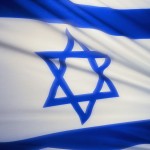Wednesday
Aug042010
Gaza Latest: Why Israel Is Welcoming the UN Enquiry
 Wednesday, August 4, 2010 at 6:57
Wednesday, August 4, 2010 at 6:57  On Monday, Prime Minister Benjamin Netanyahu informed United Nations Secretary General Ban Ki-moon that Israel would accept an international probe into the raid on the Freedom Flotilla on 31 May.
On Monday, Prime Minister Benjamin Netanyahu informed United Nations Secretary General Ban Ki-moon that Israel would accept an international probe into the raid on the Freedom Flotilla on 31 May.The panel will begin its work on 10 August and will file its first report with the UN Security Council by the middle of September. Heading the panel will be former New Zealand Prime Minister Geoffrey Palmer, an expert on international maritime law. The vice chairman is outgoing Colombian President Alvaro Uribe, who is considered pro-Israel and pro-United States. Turkey and Israel also will send representatives.
This is the first time Israel is cooperating with a UN investigation of the actions of Israel Defense Forces. Haaretz reports the mandate of the panel:
The panel's mandate is to examine the investigations that Israel and Turkey are carrying out regarding the incident of the Gaza-bound flotilla on May 31. In addition, the panel will seek to examine the facts surrounding the flotilla and recommend ways to avoid such incidents in the future.
The panel will not be authorized to call witnesses --- especially no Israeli soldiers or officers.
So it will be a very limited investigation; the US Ambassador to the UN, Susan Rice, said the nternational panel will be "complementary" to national enquiries. Rice added that the US expected "that the Panel will operate in a transparent and credible manner and that its work will be the primary method for the international community to review the incident, obviating the need for any overlapping international inquiries".
So why did Israel, contrary to initial expectations, accept a UN panel? Because, at the end of the day, it is an investigation doing no more than looking at national (i.e., Israeli) investigations which have already tried to define the findings, findings which have already tried to contain the fact that nine activists died on board the Flotilla.




